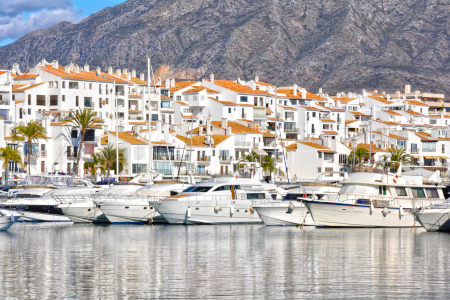If you own a property in Andalucia, particularly one in a development, which has been built illegally then a new law passed by the Junta de Andalucia on 25th September gives hope that the property can now be “regularised”.
How many illegal houses are there in Andalucia? 
It is estimated that there is some 500,000 properties in Andalucia that are built on land that is categorised as “no urbanizable” – i.e. you cannot built on them. Of those it is estimated that there is some 300,000 properties which are deemed to be illegally built.
Because there has been such a huge number of illegal properties in Andalucia the local government has just passed a law to address this issue as they recognised that the situation was unsustainable and needed to be remedied. The new law only applies to completed properties, not ones that are partially finished.
What does the new law do?
It is important to note that the new law does not change the classification of the land nor completely legalises the property but does mean that the property is legally recognised as being built, allows connection to the utilities and allows work to be carried out to conserve the properties and even the possibility of small alterations. In short the law stops short of fully legalising the properties but to all intents and purposes allows the property to continue as f it has been built legally. It allows the property to be “regularised” and recognised as having been built “Fuera de ordenacion” – i.e. “it was built illegally but we aren’t going to do anything about it”.
How to you regularise an illegal property in Andalucia?
The new law sets out the process and what documentation is required. The process will not be automatic and it is still necessary to go through an application process. Those properties situated in areas of risk of erosion, flooding and the like will require the owners to declare that they are aware of those risks and are willing to accept them.
In order to apply for the property to be regularised the property there are various steps required;
- The property must be one of the ones that falls within the scope of the new law.
- The process can be initiated by either the authorities or an interested person (presumably the owner).
- The following items must be confirmed;
- Fully identify the property
- Confirm through documentation the date when the construction was finalised.
- A relevant professional (presumably an architect or the like) confirms that the property has the minimum requirements for health and security of the owner (these minimum requirements are set out in the law and include things like structural integrity of the building, construction that avoids damp, proper water, sewerage and electrical installations and so on)
- The documentation must be lodged with the Town Hall and an explanation as to why the circumstances arose
If the application involves a development then the requirements also include things like a map of the various plots, details of the common areas and the infrastructure and so on.
Once the application has been lodged the Law says that the decision should be issued within 6 months. If a property does not have connection to water and electricity then this can then be applied for providing that it is not necessary to carry out building work to physically connect those utilities.
Does this mean that in future other illegal properties can also be “regularised”?
The Andalusian Government (and other regional governments in Spain) have previously regularised thousands of illegal properties. This latest law in Andalucia is a huge attempt to draw a line under historical failings.
So does this mean that it is OK to build an illegal property knowing that at some point in the future you can “get away with it” and then have it “legalised” or is this a line in the sand and the authorities will get tougher in future? Different people will take approaches on that. Some people will view this new law as validation that you can do whatever you want and get away with it. Other people will see this as a pragmatic approach to help people who without knowing it purchased illegal properties and a line in the sand by the regional government. We take the view that if you are buying a property in Spain your lawyer should identify such issues before you buy which allows you to make an informed choice as to whether you still wish to buy the property. We also take the view that is much simpler and safer to buy a legal property than to “legalise” or “regularise” an illegal one. Why put yourself through unnecessary stress and cost?
If you have an illegal property in Andalucia and need assistance with this subject or are thinking about buying a property in Spain and want to make sure that you do it properly from the beginning then you can contact our legal team.
Disclaimer – International legal issues are a complex area of law and this information is no substitute for independent legal advice on an individual basis taking into consideration your personal circumstances and legal requirements. This information is provided to provide general information only and was correct at the time of publishing. The legal position in relation to international transactions can change frequently and this page may not have been updated following any changes in the law. You should therefore not rely on this information and should seek legal advice in relation to your personal circumstances.
